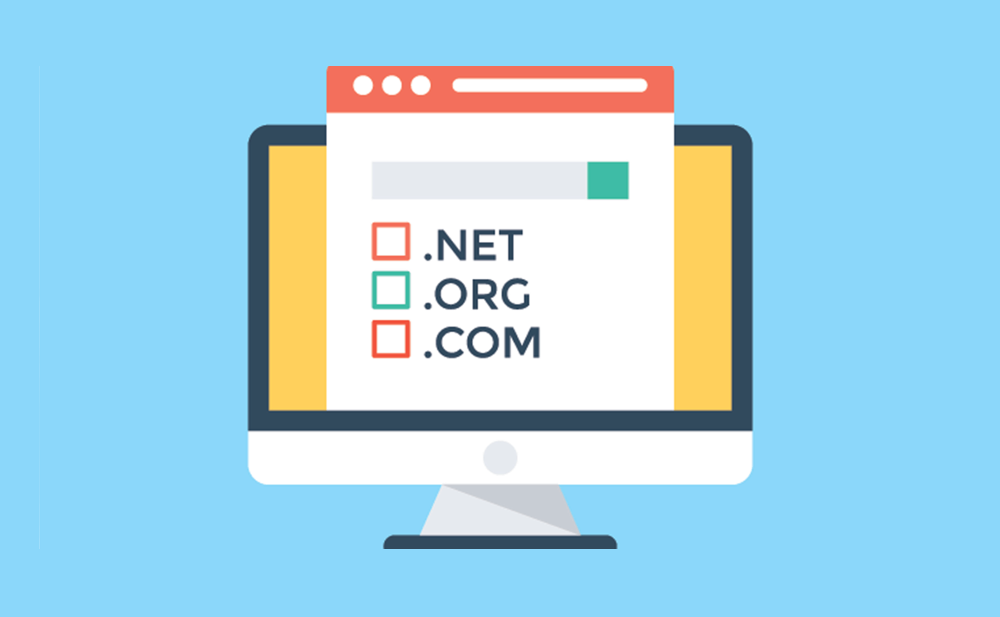When it comes to building a website, there are many technical terms that can be confusing, and one of the most important ones is the domain. A domain is essentially the address of your website on the internet, which is why it’s essential to understand what a domain is and how it works. In this article, we’ll cover everything you should know about domains to help you make informed decisions for your website.
What Is a Domain Name?

Domain name is a unique identity of any website. Behind the screen, the domain is the name of the computer server/ webserver). This domain name is intended to make it easier to access a site’s address, rather than using a complicated string of numbers known as an IP address. To build a website, you need a domain name and web hosting so that the domain name can be used and accessed on the internet.
In the back end, communication with the server is possible only by IP address, but the domain name is used for easy memorization.
FURTHER READING: |
| 1. Withheld for Privacy! What is it? |
| 2. What Is DNSSEC? What Are the Pros and Cons? |
| 3. What Is DNS Record? Everything You Need to Know |
How Does a Domain Work?
When we use a smartphone, we store our data such as songs, phone numbers, and pictures on a memory card or SD card. Then, the way the website works is similar. Every website remains stored in the server or host, and the domain name is indicated to the IP of that hosting server.
When we go to the browser and enter the website name in its address bar, the name that is associated with an IP address points to the IP of the DNS (Domain Name System) host server and the website made with the DNS name we want to open All of its data from the server is visible to us in front of us and in this way we are able to view a website in the browser.
Why are Domain Names Important?
Domain names are essential for several reasons, including:
- Branding: Your domain name is a crucial part of your branding strategy, as it’s the first thing that people see when they visit your website.
- Credibility: A custom domain name makes your website appear more professional and credible than a free domain name (e.g., yourwebsite.wordpress.com).
- Search Engine Optimization (SEO): Domain names can influence your website’s search engine ranking, so choosing a domain name that’s relevant to your niche can help improve your SEO.
How to Choose a Domain Name?
Choosing the right domain name can be challenging, but here are some tips to help you:
- Keep it Short and Simple: Your domain name should be easy to remember and type, so avoid using complicated words or long phrases.
- Make it Relevant: Choose a domain name that’s relevant to your niche, so people can easily understand what your website is about.
- Use Keywords: Incorporating relevant keywords in your domain name can help improve your SEO.
- Avoid Hyphens and Numbers: Hyphens and numbers can make your domain name difficult to remember and type, so try to avoid them if possible.
What Is TLD?
TLD (Top-Level-Domain) is used to help identify the website that it belongs to. For example, this could be its purpose, the geographical area where the website originates from, or the organization that owns it.
If you see a website that ends in .gov, then you know that that website is a government-run site. If you see a web address that ends in .kh, then you’ll know that the person who registered that site is either a Cambodian resident or an organization that does business in Cambodia.
All TLDs are managed by the Internet Corporation for Assigned Names and Numbers, which in short is ICAN. ICANN identifies the following categories of TLDs:
- Infrastructure top-level domain (ARPA): This group consists of one domain, the Address and Routing Parameter Area. It is managed by IANA on behalf of the Internet Engineering Task Force for various purposes specified in the Request for Comments publications.
- Generic top-level domains (gTLD): Top-level domains with three or more characters
- Restricted generic top-level domains (grTLD): These domains are managed under official ICANN accredited registrars.
- Sponsored top-level domains (sTLD): These domains are proposed and sponsored by private agencies or organizations that establish and enforce rules restricting the eligibility to use the TLD. Use is based on community theme concepts; these domains are managed under official ICANN accredited registrars.
- Country-code top-level domains (ccTLD): Two-letter domains established for countries or territories. With some historical exceptions, the code for any territory is the same as its two-letter ISO 3166 code.
- Internationalized country code top-level domains (IDN ccTLD): ccTLDs in non-Latin character sets (e.g., Arabic, Cyrillic, Hebrew, or Chinese).
- Test top-level domains (tTLD): These domains were installed under .test for testing purposes in the IDN development process; these domains are not present in the root zone.
What Is DNS?
Have you ever come across a ‘Telephone Directory’, widely in use before the advent of cellphones and smartphones? Its purpose was to help the user to find the telephone number of a subscriber identified by a name and an address or, in other words, we can say that it translated the name and address of a person into a telephone number. Then, the way DNS works are similar
DNS stands for Domain Name System. Basically, it’s the system that translates a domain name (https://onebyte.xyz/) into an IP address (172.67.155.217) which is the unique identifier of some piece of hardware on a network. And thanks to this IP address that our web browser can know where the destination is (the hosting server/ webserver)
Recommended reading: What Is DNS Record? Everything You Need to Know
How to Register a Domain Name?
To register a domain name, you need to follow these steps:
- Choose a Registrar: A domain registrar is a company that manages the registration of domain names. Popular registrars include GoDaddy, Namecheap, and Bluehost.
- Check Availability: Use the registrar’s search tool to check if your desired domain name is available.
- Register the Domain: If your desired domain name is available, you can register it by following the registrar’s instructions.
Conclusion
In conclusion, a domain is an essential part of your website, and choosing the right domain name is crucial for branding, credibility, and SEO. By following the tips we’ve outlined in this article, you’ll be able to choose a domain name that works best for your website.

